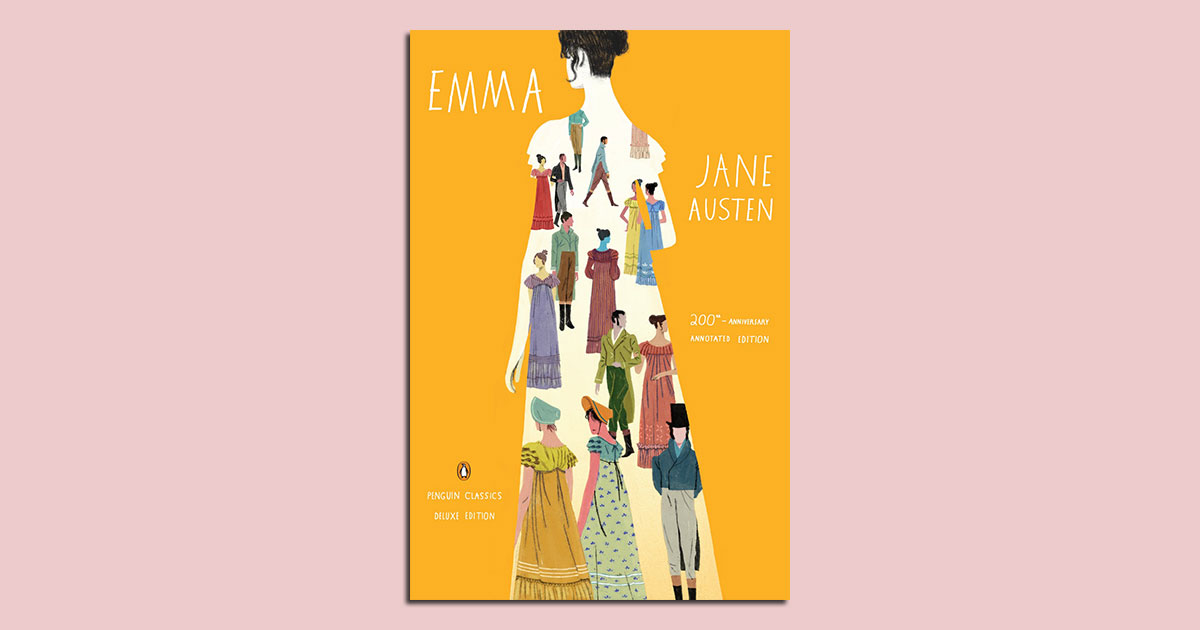
For many Jane Austen fans, reading Pride and Prejudice is their first and fondest experience with the author. But most critics and scholars agree that her finest work was really Emma, the story of an altruistic but self-absorbed, wealthy and beautiful young woman with a penchant for matchmaking who swears never to marry but falls in love anyway.
The shallow but well-meaning Emma Woodhouse turns 200 this month—and if she doesn’t sound like a perfectly swoon-inducing leading lady, Austen herself agreed: she once described the character as “a heroine whom no one but myself will much like.” Yet her story proved the perfect vessel for Austen to write “at the height of her powers,” says Austen scholar Juliette Wells.
Wells, an associate professor at Goucher College and the editor of a new annotated 200th-anniversary edition of Emma from Penguin Classics, says that in addition to the novel exemplifying Austen’s “most magnificent use of language,” it combines the best of Austen’s two writerly periods. “We see certainly some of the humor that was present more fully in Pride and Prejudice, and we see some of the moral seriousness that was there in Mansfield Park,” she says, “but it’s not as overwhelming in Emma.”
The book marks Austen’s best use of free indirect discourse, with the narration hewing close enough to Emma’s own perspective that the reader stays blind to the secrets that are also kept from Emma herself but not so close that the heroine’s self-absorption becomes unbearable. Austen’s execution of the form, still relatively new in that period, marked an important turning point in literature. “She didn’t invent free indirect discourse,” Wells says, “it had been used by others—but she’s certainly the one who took it the farthest and established its primacy, its necessariness.”
That pas de deux between clarity and obscurity allows for surprises in the novel’s denouement—a secret engagement, a proposal and even the sudden delivery of a baby. “Austen is adhering to the convention that you would not talk about pregnancy in the real world or in the fictional world until it had ended, almost,” Wells says. “If you’re reading Emma for the first time, you’re not necessarily aware of how old [Mrs. Weston] is or isn’t. And so the pregnancy comes as a surprise there, too.”
But the novel’s endurance is not just a matter of literary quality. As so many Austen fans have noted, human nature hasn’t changed.
Though the pregnancy secrecy may seem foreign today, other elements of the plot are more readily recognizable to modern readers, Wells says. Her students who come from cultures where parental devotion is prized understand Emma’s choice not to leave her father’s household, and others who feel the pressure to wed can relate to the scramble of Regency-period matchmaking—and all of us can recognize our family, friends and acquaintances in the skewered secondary characters, like talkative Miss Bates, presumptuous Mrs. Elton and aloof Jane Fairfax.
And, though readers today are often uncomfortable with the age gap between Emma and her eventual love, Mr. Knightley, the romance is a modern one in many ways. If it lacks the universal appeal of Pride and Prejudice’s Elizabeth Bennet and Mr. Darcy, it boasts a realistically gradual arc. Emma is unbothered by the idea that she’ll never find love, and Mr. Knightley doesn’t rush in head-first either. “You have the sense that he wakes up very slowly to the fact that he actually does desire her,” Wells says.
Perhaps all that’s missing to get contemporary readers to appreciate Emma the way they do Pride and Prejudice is a top-notch film or television adaptation. Amy Heckerling’s Clueless, a playful 1990’s homage, is “a work of genius,” Wells says, but “there’s not one single period adaptation that everybody loves.” While the Gwyneth Paltrow-starring 1996 film and a 2009 BBC mini-series were both reasonably well received, “we’re still waiting for the really definitive great Emma adaptation.” Maybe all the modern reader needs to fall in love with Emma Woodhouse on the page is to fall in love with Mr. Knightley on screen, Colin Firth lake scene-style.
More Must-Reads from TIME
- Cybersecurity Experts Are Sounding the Alarm on DOGE
- Meet the 2025 Women of the Year
- The Harsh Truth About Disability Inclusion
- Why Do More Young Adults Have Cancer?
- Colman Domingo Leads With Radical Love
- How to Get Better at Doing Things Alone
- Michelle Zauner Stares Down the Darkness
Contact us at letters@time.com